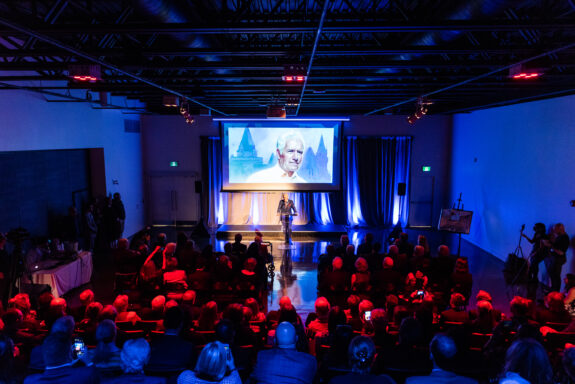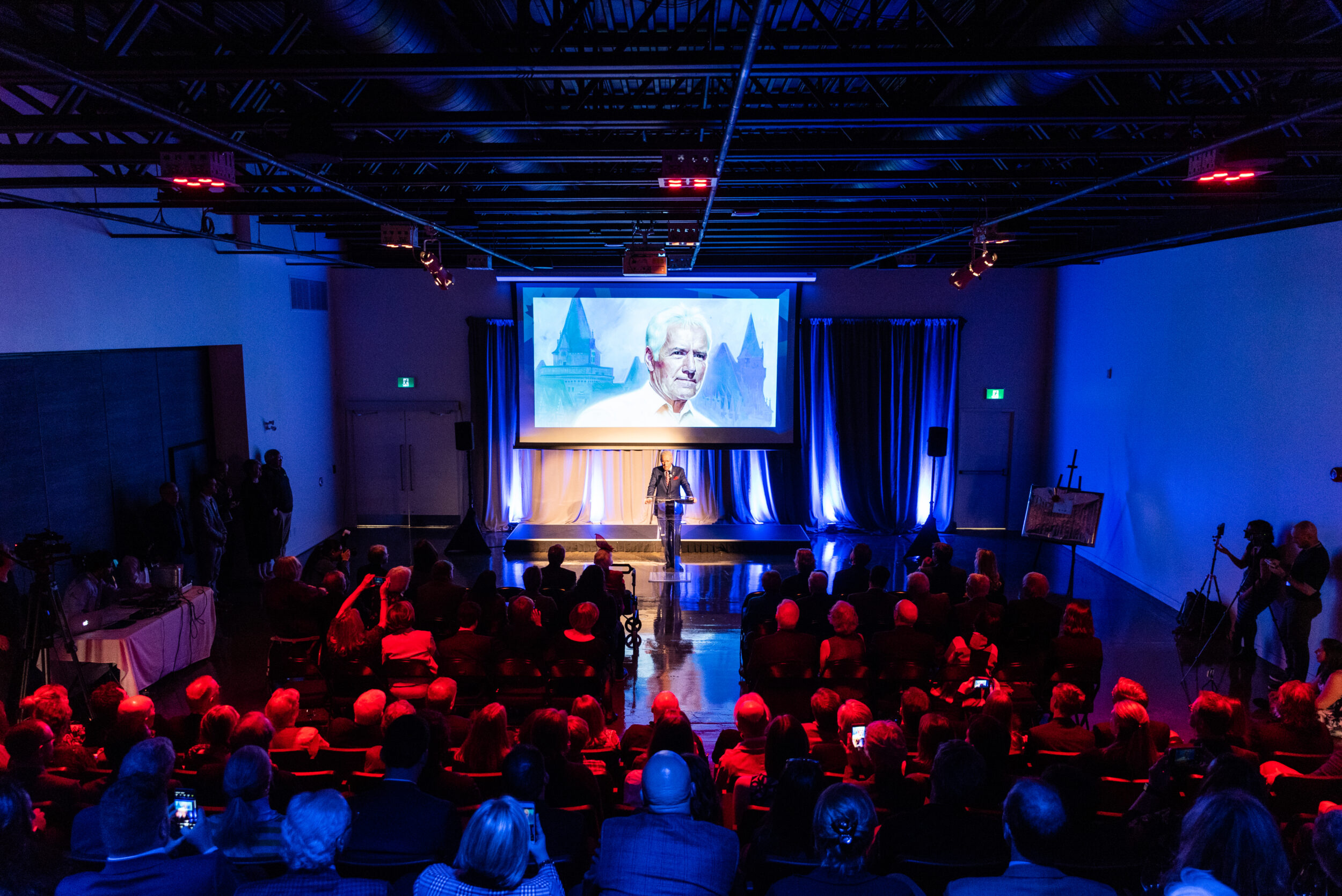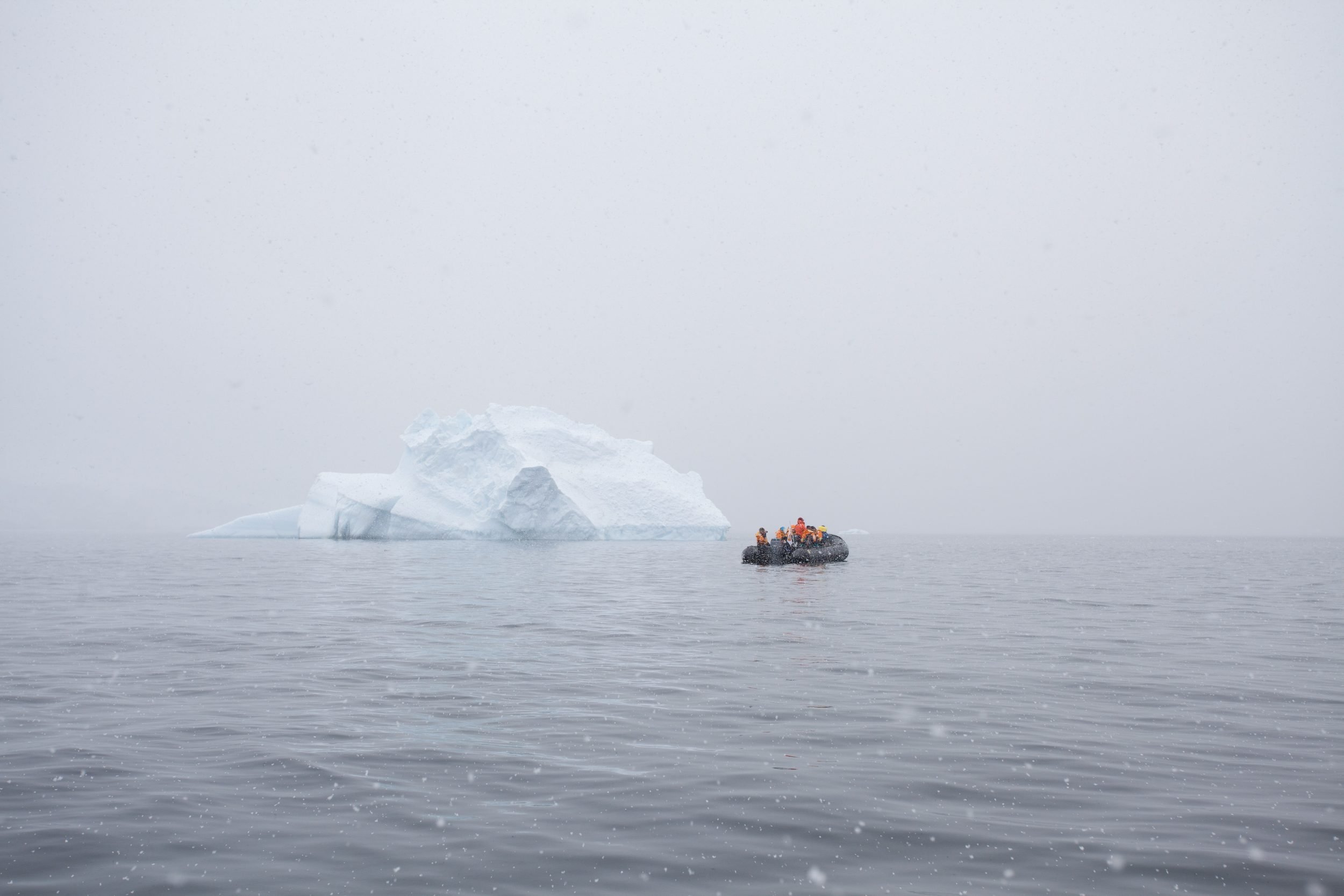The Royal Canadian Geographical Society inherited the practice of appointing an Honorary President from Britain’s Royal Geographical Society. But for the RCGS, the position serves a different purpose: the personification of the Society’s core values.
The Society’s first Honorary President was Joseph B. Tyrrell — explorer, geologist and fossil discoverer — whose name is commemorated on a peak in Alberta’s Banff National Park and in the name of the world-renowned Royal Tyrrell Museum of Paleontology.
Until November 2020, the Society’s Honorary President was Alex Trebek.

Honorary President
Chief Perry Bellegarde
 Honorary President
Chief Perry Bellegarde
Honorary President
Chief Perry Bellegarde
Perry Bellegarde is a First Nations advocate, oskâpêwis (a Cree word meaning “helper”), leader, role model and the Royal Canadian Geographical Society’s Honorary President.
Over the past 35 years, Bellegarde has held a number of leadership roles, including serving two terms as the National Chief of the Assembly of First Nations (2014 to 2021). A strong voice for inherent and Treaty rights, Bellegarde believes Indigenous knowledge and values are crucial to building a more just and inclusive society.
Bellegarde recently played a critical role in the overwhelming success of the Indigenous Peoples Atlas of Canada, published by the Society in 2018. In his introduction to the First Nations volume, he zeroed in on the importance of setting a positive course for the next seven generations. “It is important we get to know each other, appreciate and celebrate our diversity and build bridges of understanding,” he wrote.
As National Chief, he campaigned tirelessly to close the gap in the quality of life between First Nations and other families in Canada, leading the Assembly through a period of profound transformation in public awareness of First Nations concerns and priorities, including the crucial importance of First Nations expertise as Canada — and the world — grapples with the climate crisis.
Other pivotal accomplishments during his tenure include the passage of Canada’s first national legislation recognizing and protecting Indigenous languages, much needed changes in how government services in First Nations communities are funded and securing a legal commitment to national implementation of the United Nations Declaration on the Rights of Indigenous Peoples.
Bellegarde is a highly sought-after speaker who continues to educate and inspire, promote the rights and well-being of First Nations and celebrate their richness and diversity.
Bellegarde was awarded the Society’s Gold Medal in 2018 and became Honorary President of the RCGS in November 2021.

Honorary Vice President
Roberta Bondar
 Honorary Vice President
Roberta Bondar
Honorary Vice President
Roberta Bondar
Astronaut, neurologist, landscape photographer, role model and the The Royal Canadian Geographical Society’s most recent Honorary Vice-President. Roberta Bondar has been sharing Canada with the world since she snapped pictures of the country from orbit, 300 kilometres above Earth’s surface.
That was in 1992, when she, as the first Canadian woman in space, circled the globe 129 times over eight days in Space Shuttle Discovery, simultaneously conducting crucial experiments related to microgravity for 14 nations.
Bondar has since continued to travel widely as a celebrated landscape photographer, publishing several collections of her work. “I changed how I approached my passion and my curiosity,” she says, “by moving from the space program to being an explorer on the surface of the planet and sharing that passion.” She hopes this can inspire Canadians to protect their country and start digging into their own issues.
Citing her enormous achievements, Gavin Fitch, President of the RCGS, has said, “If anything, Dr. Bondar is overqualified for the Society’s Honorary Vice-Presidency.”

Honorary Vice President
Wade Davis
 Honorary Vice President
Wade Davis
Honorary Vice President
Wade Davis
Wade Davis was 20 — a student at Harvard University working toward degrees in anthropology and biology and a PhD in ethnobotany — when he set out on his first research expedition into the Amazon. He would go on to spend three years there, gathering more than 6,000 botanical collections in the South American rainforest and reaches of the Andes, living with 15 different Indigenous groups in eight countries to study their traditional uses of medicinal and psychoactive plants.
In the decades since, the Vancouver-born, Pointe-Claire, Que.-raised “plant explorer” and ethnographer has carried out fieldwork among several Indigenous societies of northern Canada, and has documented folk rituals, the world’s biodiversity crisis and more from Australia and East Africa to Haiti, Mongolia and South Pacific island nations. He has published 17 books and his photographs have appeared in numerous collections and publications.
Davis is Honorary Vice-President of the RCGS (and was awarded its Gold Medal in 2009) and an Explorer-in-Residence for the National Geographic Society. His mission, he says, has always been to tell the stories of the world’s Indigenous societies, in such a way that he might “change the way the world views and values culture.”

Honorary Vice President
Joe MacInnis
 Honorary Vice President
Joe MacInnis
Honorary Vice President
Joe MacInnis
Dr. Joe MacInnis is a renowned leader, underwater explorer, physician and author who has led or participated in more than 50 of the world’s most important expeditions. In 1974, he was the first scientist to dive into the frigid waters of the North Pole, logging more time beneath the surface of the Arctic Ocean than any other scientist on Earth. He was also one of the first people to dive the wreck of the RMS Titanic, inspiring the blockbuster film directed by his friend and mentee, James Cameron.
MacInnis participated in his first dive at the age of 17 in Florida, and since then, his life has revolved around exploring what lies beneath the surface. In the mid-1950s, he attended the University of Toronto, where he was the captain of the swim team and held the Canadian record for breaststroke before obtaining his MD in 1962. He then moved on to work with the U.S. Navy, the Canadian Forces, and the Russian Academy of Sciences. MacInnis’ lifetime of work includes analyzing leadership and teamwork in high-risk environments such as the deep ocean, battlefields, governments and corporations.
In 1976, his pioneering research on undersea science and engineering projects earned him Canada’s highest honour – the Order of Canada. MacInnis has also authored ten books, his latest, Deep Leadership: Essential Insights from High Risk Environments.
Other notable career highlights include being the team leader of Sublimos, the first Canadian underwater science station, acting as co-leader of a $5-million expedition to film Titanic in Imax, and being the founding member of the Trudeau Foundation. MacInnis was awarded the Society’s Gold medal in 2022.

Honorary Vice President
Arthur E. Collin
Honorary Vice President
Arthur E. Collin
A well-known oceanographer, Arthur E. Collin was President of the Royal Canadian Geographical Society from 1998-2004 and received the Camsell medal in 2011.
In 1955, Collin was appointed as a Research Scientist with the Fisheries Research Board of Canada and was made a Fellow of the Arctic Institute of North America in 1963. In 1965, he served as Scientific advisor for the Maritime Forces and then as the Dominion Hydrographer from 1967 to 1972, where he was the youngest appointee to the position at 38. From 1971 to 1980, he served as Assistant Deputy Minister of Fisheries and Oceans and the Environment. He was appointed as Assistant Deputy Minister, Atmospheric Environment Service, which he held the role of from 1977 to 1980. In 1984, Collin was appointed as Science Advisor to the Government of Canada and Secretary to the Minister of State for Science and Technology. In 1984 he was appointed as Chairman Polar Climate Stability Network.



